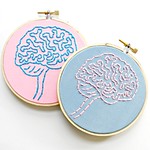
How Trauma Affects the Brain — and How Schema Therapy Helps You Heal
October 25, 2025By Tiffany Azzinaro, LCSW-R | Discovering Balance Counseling
“Why can’t I just focus?”
If you’ve ever asked yourself that question — only to spiral into guilt, frustration, or self-blame — you’re not alone.
ADHD (Attention-Deficit/Hyperactivity Disorder) isn’t about laziness or lack of discipline. It’s about how your brain is wired to think, feel, and respond to the world differently. And those differences can make daily life feel like a constant game of catch-up.
At Discovering Balance Counseling, we help clients move beyond shame and start understanding ADHD as a pattern of strengths and struggles — not a personal failure.
🧠 What ADHD Really Looks Like
Most people picture ADHD as hyper kids bouncing off the walls.
In reality, many adults (especially women) experience ADHD as mental chaos masked by perfectionism or exhaustion.
Here are some common ways ADHD can show up in everyday life:
-You have bursts of motivation — then sudden burnout.
-You procrastinate on “simple” tasks but can hyperfocus on things you love.
-You constantly lose track of time, appointments, or where you put your keys.
-Your brain feels like it’s always on — juggling 20 tabs at once.
-You get overwhelmed easily by clutter, noise, or decisions.
-You feel guilty for not living up to your potential — even though you’re trying hard.
ADHD is not a character flaw. It’s a neurological difference that affects attention, working memory, and emotional regulation.
💬 The Emotional Side of ADHD
What people often miss is that ADHD isn’t just about focus — it’s about feeling.
Many clients describe emotional intensity, rejection sensitivity, and difficulty bouncing back from criticism.
It’s common to feel:
-Shame for “underperforming” or missing deadlines.
-Anxiety from constantly trying to keep up.
-Loneliness from being misunderstood.
-Frustration when motivation seems to disappear without reason.
These emotions aren’t weakness — they’re the byproduct of years spent trying to function in a world not built for neurodivergent brains.
🌱 How Schema Therapy Helps
In Schema Therapy, we look beyond surface behaviors and explore the why underneath.
For clients with ADHD, schemas often form around chronic invalidation or feeling “different” since childhood.
Common ADHD-related schemas include:
-Defectiveness/Shame – “Something is wrong with me.”
-Failure – “I’ll never get it together.”
-Unrelenting Standards – “If I can just be perfect, no one will notice my chaos.”
-Dependence/Incompetence – “I can’t trust myself to manage life.”
Schema Therapy helps you rebuild trust with yourself — not by forcing productivity, but by healing the parts of you that learned to hide or overcompensate.
Through imagery work, cognitive restructuring, and inner mode repair, you learn to:
-Challenge internalized shame and perfectionism
-Strengthen your “Healthy Adult” voice that offers guidance, not judgment
-Create practical systems that align with your brain (not against it)
-Reconnect with joy, creativity, and self-acceptance
🧩 Tips for Thriving With ADHD
1.Externalize your structure.
Use planners, alarms, and visual cues — your brain works better when reminders live outside your head.
2.Break tasks into micro-steps.
“Write report” is too big. “Open document and write one paragraph” is doable.
3.Work with your energy, not against it.
Plan creative tasks during your “on” hours and low-stimulation work when you’re mentally tired.
4.Don’t confuse rest with failure.
ADHD brains need recovery time. Downtime isn’t procrastination — it’s maintenance.
5.Find compassionate accountability.
Whether it’s therapy, coaching, or peer support, connection helps break isolation and sustain progress.
💛 The Takeaway
-ADHD isn’t about fixing yourself — it’s about understanding yourself.
-When you begin to see ADHD through the lens of compassion and neuroscience, you stop asking, “What’s wrong with me?” and start asking, “What does my brain need to thrive?”
-At Discovering Balance Counseling, we help clients with ADHD learn new strategies, challenge old beliefs, and reconnect with their strengths.
Because your brain isn’t broken — it’s brilliant, creative, and capable of extraordinary things once it’s understood.
👉 Schedule a consultation: https://discoveringcounseling.com/
to learn how therapy can help you find balance, clarity, and confidence in your ADHD journey.



